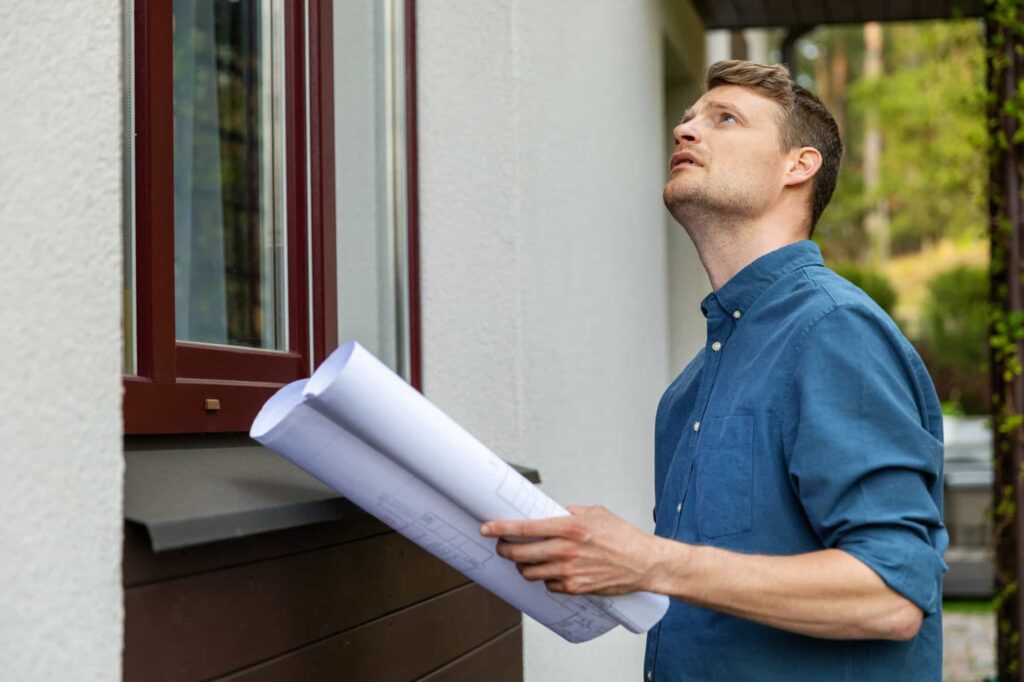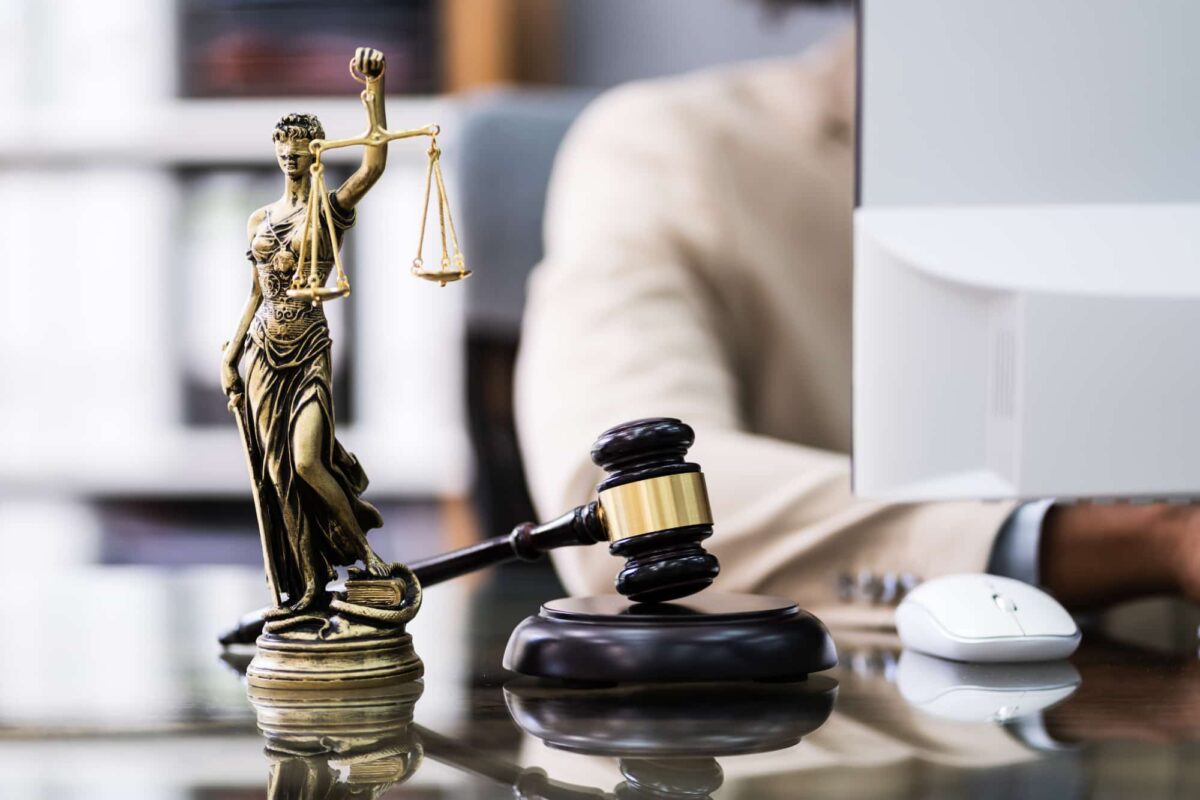Tracking down the right person to serve legal documents can feel like detective work. Before handing over that summons or complaint, a property inspection helps confirm you’ve got the right address and the right person. Think of it as the crucial first step in making sure your legal case starts off on solid ground.
When process servers check a property, they’re looking for clear signs of who lives there. Is there a car in the driveway? Lights on inside? Does the name on the mailbox match your paperwork? These details matter because serving the wrong person or an empty house can derail your entire case.
Professional inspectors bring a trained eye to this process. They know exactly what to look for – from checking utility meters to documenting property features like that brick exterior or two-car garage.

They’ll take photos, knock on doors to verify occupants, and if no one’s home, they might even peek through windows to confirm vacancy. Those yellow utility shut-off notices on the door? They’ll document those too.
But do you really need a professional for this job? With courts getting stricter about proper service and opposing parties ready to challenge any misstep, having an expert who understands legal compliance could make all the difference between moving your case forward and starting over from scratch.
What is a Property Inspection in Legal Contexts?
A property inspection, sometimes called a property investigation, is a crucial step process servers take before attempting to deliver legal documents. Unlike home inspections for real estate transactions, these inspections focus specifically on verifying who lives at an address and documenting the property’s condition for legal purposes.
When a process server conducts a property inspection, they’re essentially checking if the intended recipient of legal documents actually lives at the address. This helps avoid wasted time, prevents improper service, and ensures legal proceedings can begin without unnecessary delays.
Before serving someone an eviction notice, complaint, summons, or other important legal documents, a process server will conduct a property check or inspection.
Legal property inspections differ significantly from other types of inspections. While home inspectors look for structural issues or code violations, legal inspectors focus on occupancy evidence and proper identification. A property inspection can also help lawyers gather evidence, verify addresses of intended recipients of legal documents, and reduce liability risks that could cause challenges to their cases. Their documentation becomes part of the legal record, potentially serving as evidence in court proceedings if service is later challenged.

Legal Requirements for Property Inspections
Legal compliance isn’t optional—it’s essential.
Property inspections for legal purposes must adhere to complex regulations that vary by jurisdiction. While federal laws provide a broad framework, state and local regulations often dictate the specific requirements for proper property inspections. Process servers must stay current on these specific laws to ensure their inspections remain legally compliant.
A property investigation before serving someone can help ensure adherence to all applicable laws. Process servers need a thorough understanding of trespassing laws, privacy regulations, and service requirements. For example, they must know whether they can legally photograph a property from the street or if they need permission to enter a gated community. Additionally, inspections typically should occur between 6:00 a.m. and 10:00 p.m. to comply with industry standards.
The consequences of non-compliance can be severe. Non-compliant inspections can lead to case dismissals if a judge determines the service was invalid. This not only damages the integrity of the legal system but can create significant liability for attorneys whose cases get derailed.
In serious cases, such as trespassing on private property during an inspection, process servers could even face criminal charges. Professional inspectors help mitigate these risks through their expertise in navigating legal requirements.

When Is a Professional Inspector Required?
While not every situation demands a professional inspector, certain scenarios make an inspector’s expertise invaluable. Professional inspectors become necessary when dealing with high-value properties, contested evictions, or cases where defendants have a history of challenging service.
When service attempts face scrutiny in court, having a professional inspector’s documentation can help protect your case from opposing party arguments that service was invalid.
High-stakes legal situations particularly benefit from professional inspection. These include foreclosure proceedings, restraining orders, significant financial disputes, and cases involving parties actively avoiding service.
In these circumstances, a professional inspector’s attention to detail ensures due process by giving defendants the right to know why they’re being served and the right to respond to complaints or summons. Thorough documentation becomes critical if service is later challenged.
The benefits of using a professional inspector are substantial. Professionals understand legal boundaries and compliance requirements across jurisdictions. They follow a comprehensive property investigation checklist to ensure they thoroughly examine numerous aspects of the property while remaining in compliance with all regulations.
Their professional experience helps them spot occupancy indicators a novice might miss, and their documentation carries more weight in court than self-collected evidence. When legal proceedings hinge on proper service, the cost of professional inspection is minimal compared to the potential expense of case dismissals or delays.
The Property Inspection Process
A professional property inspection begins with preparation. The inspector confirms the address, researches property details, and reviews any special instructions from the attorney. Upon arrival, they’ll first observe and document the property from legally permissible locations, typically the street or public sidewalk.
The property inspection checklist includes several essential elements:
- Taking photos of the property exterior (from public areas only)
- Verifying the street address via mailbox number or house markings
- Documenting property details (brick home, 2-car garage, etc.)
- Checking outdoor water or electricity meters
- Noting vehicles in the driveway (make, model, license plate if visible)
- Knocking on doors to verify occupants
- Confirming the names of residents if someone answers
- Checking for vacancy indicators like boarded windows or shut-off notices
Documentation is crucial throughout the process. Professional inspectors take date-stamped photographs, detailed notes about the property’s condition, and maintain records of all contact attempts.
If the property appears vacant, the inspector might take pictures through windows (without trespassing) to document the interior condition. They’ll photograph any utility shut-off notices, eviction notices, or other postings that indicate occupancy status. This thorough documentation becomes critical if service is challenged, providing verifiable evidence that proper procedures were followed.
What Professional Inspectors Can (and Cannot) Do
Professional property inspectors operate within strict legal boundaries to ensure compliance while gathering necessary information. They can knock on doors, take photographs from public areas like streets or sidewalks, and speak with neighbors to verify occupancy. They can document the property’s exterior features and record any visible notices posted on the property. When someone answers the door, they can verify the resident’s identity against their service documents.
However, there are clear limitations to protect privacy. Process servers cannot illegally trespass by sneaking under gates or scaling fences to access private property. They cannot misrepresent themselves to gain entry, though they don’t need to immediately identify themselves as process servers.
They must respect no trespassing signs and cannot force entry into a home or building. While they can take photos of the property, they must do so from legally accessible locations.
Industry guidelines recommend that property inspections occur between 6:00 a.m. and 10:00 p.m., avoiding late-night visits that could be considered harassment.
Many jurisdictions have specific rules about when legal papers can be served, which also apply to when inspections can occur. Professional inspectors are aware of these time restrictions and adjust their schedules accordingly. Additionally, they recognize certain locations—like places of worship during service—may be off-limits for service or inspection regardless of the time of day.
How Professional Inspectors Support Due Process
Professional property inspectors play a vital role in protecting due process rights during legal proceedings. By verifying an address before delivering documents, they ensure efficient delivery that gives the intended recipient proper time to respond. This verification is fundamental to due process, which gives defendants the right to know why they’re being served and the right to respond to complaints or summons.
The ethical integrity of legal proceedings depends on proper notification. Professional inspectors maintain high standards of professional conduct, avoid conflicts of interest, and uphold the judicial process’s ethical integrity. Their thorough documentation creates time-stamped affidavits that courts can rely on as valid proof of service attempts. When process servers conduct property inspections following strict protocols, they demonstrate their commitment to ethical service and legal compliance.
A professional inspection provides the foundation for a solid legal case by protecting attorneys from opposing party arguments that service was invalid. This protection is critical since improper service can derail an otherwise strong case. By establishing a clear record of occupancy, professional inspectors help ensure that once legal proceedings begin, they won’t be hindered by technical challenges to service. Their work supports the principle that justice requires proper notification – a cornerstone of our legal system.
At Firefly Legal, we provide process serving and other legal support services to help you stay on track with court cases and compliant with any regulations.
Property inspections serve as the foundation of successful legal proceedings, helping ensure that parties receive proper notification and due process. When professionally conducted, these inspections verify occupancy, document property conditions, and create a legal record that can withstand scrutiny. While not every situation requires a professional inspector, the potential consequences of improper verification make professional expertise invaluable in many cases.
For attorneys and legal professionals, investing in professional property inspections is a small cost compared to the potential expense of case dismissals or delays. Professional inspectors bring specialized knowledge of legal compliance requirements, thorough documentation practices, and experience identifying occupancy indicators that others might miss. Their work creates a protective shield against service challenges that could otherwise derail your case.
Don’t leave your legal proceedings to chance. Partnering with industry leaders like Firefly Legal provides access to nationwide property investigations conducted with discretion, integrity, and compliance.




